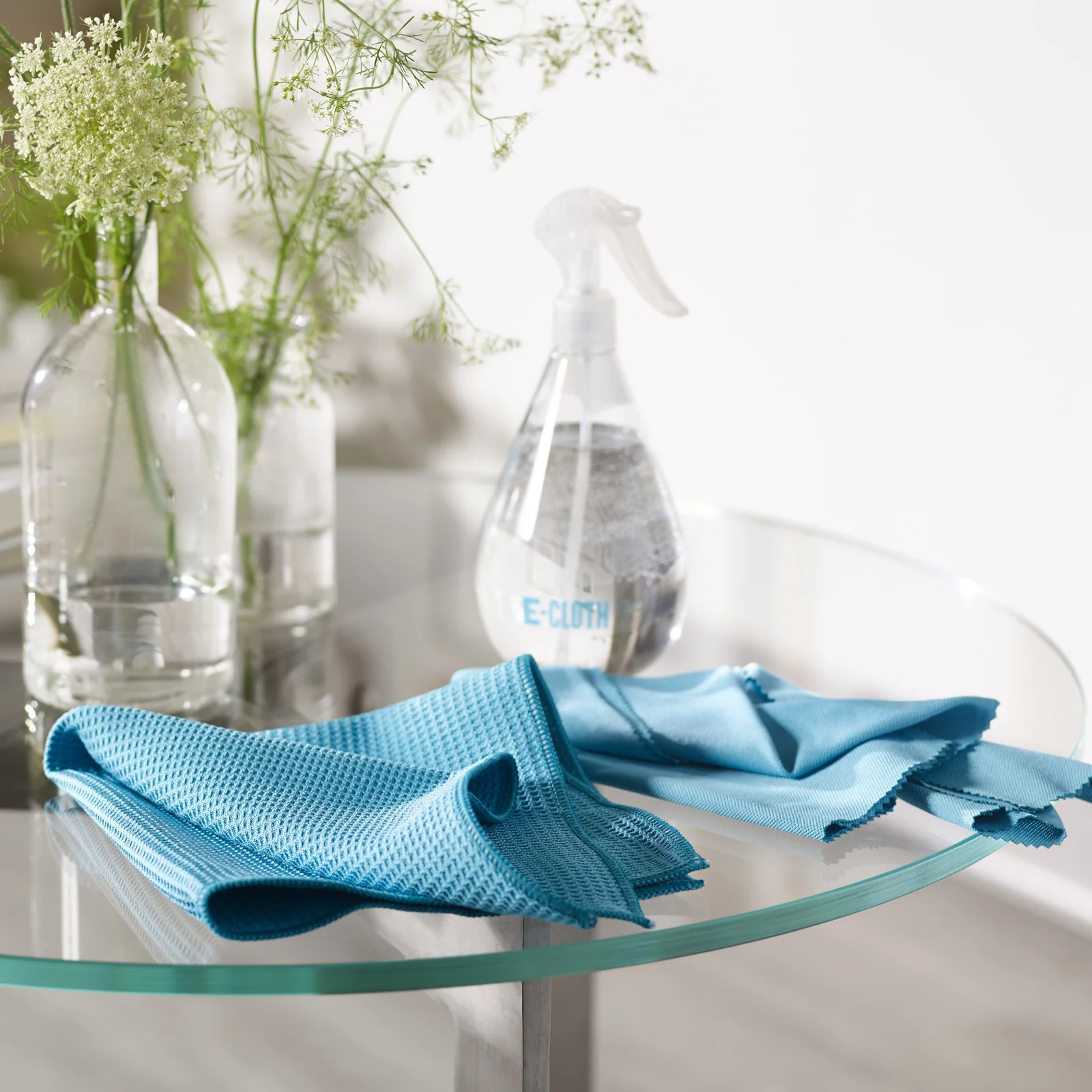Table of content:
How Often You Should Clean Your Cat litter box
Consequences of Skipping Cat litter box Cleaning
DIY Methods to Clean Your Cat litter box
Keeping your cat’s litter box clean is crucial for both your pet’s health and your home’s comfort. Regular maintenance—like daily scooping and routine full cleanings—helps control odors, reduces health risks, and encourages your cat to use the box consistently. Factors such as the number of cats, the type of litter, and the box’s location all play a role in how often you should clean. By staying on top of litter box hygiene, you create a fresher, healthier environment for your cat and everyone in your household.

A Clean You Can See
Our high-performance microfiber products simplify cleaning, making it quick, easy, and effective, so you can enjoy visible results without the fuss. No streaks, just results.
How Often You Should Clean Your Cat litter box
How Often to Clean Your Cat Litter Box
- Daily Scooping is Essential – Removing clumps and solid waste each day keeps odors in check and prevents bacteria buildup. Doing this daily helps maintain a pleasant space for both you and your cat, and discourages your feline from avoiding the box.
- Complete Litter Change Weekly (or More Often for Multi-Cat Homes) – In general, a full cleaning with a litter change once a week is a good benchmark. However, if you have multiple cats or if you use a non-clumping litter, you might need to change the litter more frequently to maintain a fresh environment.
- Understand the Litter Type Impact – Clumping litter traps waste and allows for easy removal, but the overall frequency for complete changes still depends on the number of cats and their habits. For non-clumping types, the residue might build up faster, necessitating more frequent cleanings.
- The Cat’s Health and Behavior Matter – Cats are sensitive to smell and cleanliness. If you notice your cat is avoiding the litter box, it could be a sign that the box isn’t clean enough. Regular cleaning helps reinforce good habits and may prevent accidents.
- Ventilation and Location – The area around your litter box can affect how quickly odors build up. A well-ventilated space might allow for slightly less frequent complete changes, while a confined area might need more diligent cleaning.
Streak-Free Wherever You Need It
E-Cloth is committed to delivering a clean you can see—effortlessly erasing messes with just water for a spotless shine, free of streaks and added chemicals.

Consequences of Skipping Cat litter box Cleaning
- Unpleasant Odors Take Over Fast: Cat urine and feces aren’t shy about making their presence known. When you skip cleaning, the smell doesn’t just linger—it multiplies. Ammonia from urine builds up, and that’s the nose-wrinkling culprit that can make your whole home feel less inviting.
- Your Cat Might Boycott the Box: Cats are picky. If their litter box is dirty, they may decide to do their business elsewhere—like your laundry basket, a rug, or that one spot you never notice until it’s too late. This isn’t spite; it’s just their way of saying, “Clean my bathroom, please.”
- Health Risks for You and Your Cat: A neglected litter box can become a breeding ground for bacteria and parasites. Ammonia buildup can irritate your eyes, nose, and throat, especially in small spaces. For cats, dirty boxes can lead to urinary tract issues or infections, which are no fun for anyone.
- Tracking Litter and Mess Everywhere: When the box is full, your cat’s paws pick up more waste and litter, spreading it around your home. Suddenly, you’re finding little “gifts” in places you’d rather not.
- Stains and Damage to Floors: Overflowing or uncleaned boxes can lead to leaks or spills, especially if your box is on a hard floor. Over time, this can stain or even damage flooring, which is a headache (and a wallet-ache) to fix.
- Unwanted Guests: A dirty litter box can attract bugs like flies or even rodents. No one wants to add pest control to their cleaning routine.
- Stress for Your Cat: Cats are creatures of habit and comfort. A dirty box can stress them out, leading to changes in behavior, appetite, or even their relationship with you.
DIY Methods to Clean Your Cat litter box
.svg)
Baking Soda and Vinegar
Sprinkle baking soda over the empty litter box, then pour white vinegar on top. Let the mixture fizz and sit for a few minutes to break down stains and odors. Scrub with a brush, rinse thoroughly with water, and dry before adding fresh litter. This natural method deodorizes and disinfects the box effectively.
.svg)
Hydrogen Peroxide and Water
Mix equal parts hydrogen peroxide and water in a spray bottle. Spray the solution onto the empty litter box and let it sit for 5–10 minutes. Scrub with a brush, then rinse thoroughly and let dry before adding fresh litter. This method disinfects and helps eliminate odors naturally.
.svg)
Activated Charcoal and Warm Water
Sprinkle a thin layer of activated charcoal over the empty litter box. Add warm water and let it sit for 10–15 minutes. Scrub gently, then rinse thoroughly. Activated charcoal helps absorb odors and deep-clean the box naturally.
.svg)
Lemon Juice and Warm Water
Mix equal parts lemon juice and warm water in a spray bottle. Spray the solution inside the cat litter box, let it sit for a few minutes, then scrub and rinse thoroughly. This natural cleaner helps neutralize odors and leaves a fresh scent.
.svg)
Ineffective Odor Control
Baking soda and vinegar may not fully neutralize strong cat litter odors, as their reaction is brief and doesn’t address persistent smells. This method can leave lingering odors and may not provide long-lasting freshness in the litter box.
.svg)
Residual Bacterial Growth
Hydrogen peroxide and water may not fully eliminate all bacteria in the litter box, allowing some to survive and multiply. This residual bacterial growth can lead to lingering odors and potential health risks for both cats and humans.
.svg)
Charcoal Saturation Limits
Activated charcoal can only absorb a limited amount of odors and toxins before becoming saturated, reducing its effectiveness. Once saturated, it no longer traps smells, making the DIY cleaning method less effective over time.
.svg)
Material Corrosion Risk
Lemon juice is acidic and can corrode certain metals or damage protective coatings in some litter boxes, especially if not rinsed thoroughly, leading to material degradation and reduced lifespan of the box.
Ready for an Easier Way to Clean?
Skip the mixing, spraying, and scrubbing. With E-Cloth, you get a streak-free shine using just water—no added chemicals, no hassle. Make every window sparkle the simple way.
Explore other Articles
Headphones
Learn how often to clean your headphones for optimal sound and hygiene. Simple tips to keep them fresh and lasting longer.
Bookshelves
Discover the ideal frequency to clean your bookshelves for a dust-free, organized, and fresh home library.
Jeans
Discover the ideal frequency to clean your jeans for lasting style, comfort, and fabric care. Keep them fresh and durable!
Range hood filter
Learn how often to clean your range hood filter for optimal kitchen air quality and appliance efficiency. Keep it fresh and safe!
Washing machine
Learn how often to clean your washing machine for optimal performance and freshness. Keep your laundry fresh and your machine efficient!
Garage floors
Discover the ideal frequency for cleaning your garage floors to keep them spotless and well-maintained year-round.
Experience Real Cleaning
A Clean You Can See
Experience Real Cleaning


